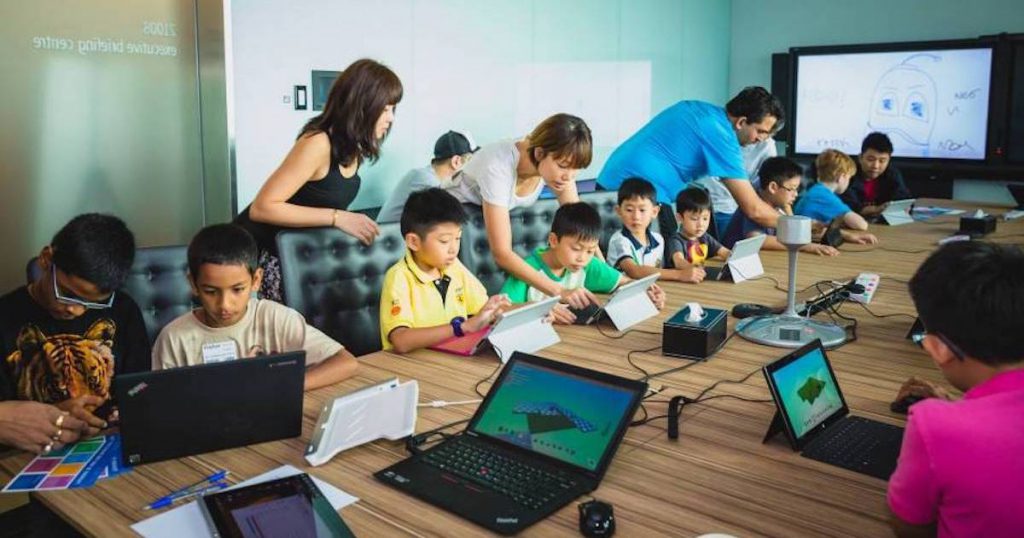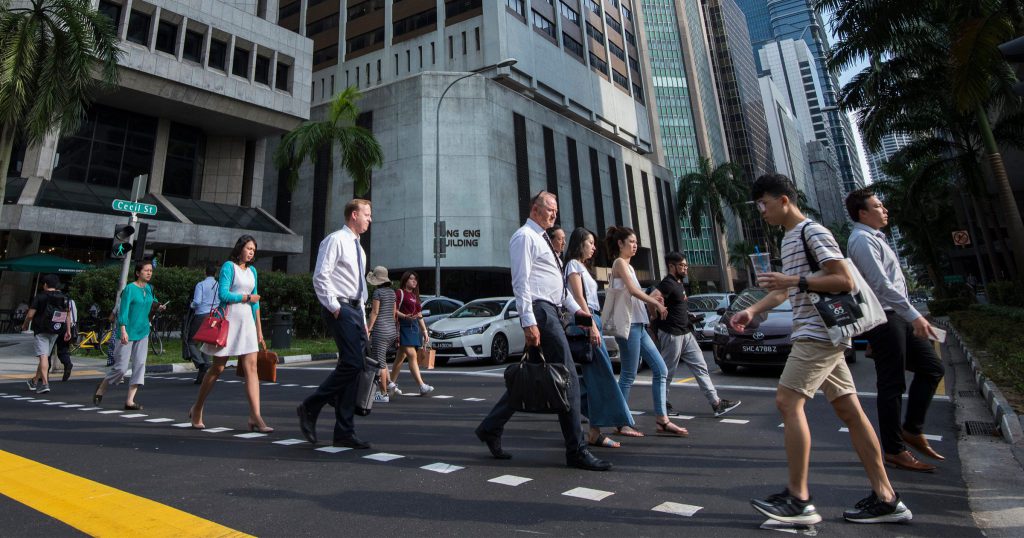Kids these days are ridiculously tech savvy, and this is little wonder since they are exposed to electronic gadgets such as smartphones and tablets at such an early age.
Singapore is leveraging on this trend and it hopes to nurture its very “own generation of Steve Jobs,” said Minister for Communications and Information Yaacob Ibrahim.
According to him, Singaporeans need to have creative problem-solving skills, as well as a curious mind and passion to tinker and create, in order to truly reap the benefits of technology.
In line with this, Dr Yaacob announced the launch of the Digital Maker Programme to foster digital natives and seed an enterprising maker culture among Singaporeans.
Inspiring Digital Creativity
As part of this programme, the Infocomm Media Development Authority (IMDA) is partnering the Ministry of Education (MOE) to introduce digital making to schools over the next two years.
Primary and secondary students will be given micro:bit, a pocket-sized, code-able computer that is equipped with motion detection and Bluetooth technology.

This device is already implemented in Britain schools to help teach coding and inspire interest in STEM (Science, Technology, Engineering and Mathematics) subjects.
It is designed to be fun and easy to use, and lets students code with something simple in seconds – like lighting up its LEDs or displaying a pattern – with no prior knowledge of computing.
It also connects to other devices, sensors, kits and objects, and is a companion to Arduino, Galileo, Kano, littleBits and Raspberry Pi, acting as a spring board to more complex learning.
Each element is completely programmable via easy-to-use software on a dedicated website microbit.org, that can be accessed from a PC, tablet or mobile.
In Singapore, some students from Xinmin Secondary School actually wrote codes to turn this device into a locator tool to help them find their belongings.
Dr Yaacob finds this particular project very inspiring, and he hopes to see more students from the participating schools designing solutions to solve real-world problems.
This Digital Maker Programme will also be rolled out to the community via the People’s Association, the Science Centre Singapore and self-help groups.
In IMDA’s early trials at Tanjong Pagar and Toa Payoh East community centres, residents there had used the micro:bit to create an automated water system for the community garden.
Dr Yaacob said seed funding will be provided to Singapore companies that develop maker-centric products and with the potential to commercialise, such as products like the micro:bit.
He also noted some promising “made-in-Singapore” products in the pipeline, such as Tinkertanker and Home-Fix.
Coding Is The Latest Education Trend
This new programme actually complements existing IMDA’s enrichment initiatives such as Code@SG‘s Code for Fun, introduced in June 2015 in MOE schools to infuse computational and logical thinking in children.
Similarly, tech corporation Microsoft has also launched a three-year nationwide initiative in 2015 called Code For Change to help young children develop computational thinking skills.

In this new programme, Microsoft is also contributing by providing training for the MOE teachers.
It’s clear that Singapore is now getting serious about the whole tech education, as it evidently ramps up efforts to introduce coding to kids.
More children are being sent for computational thinking and coding lessons as parents are increasingly seeing the value in starting them early in this manpower-hungry industry.
Moreover, as Singapore is working its way towards the Smart Nation vision, I guess parents just want their children to be better prepared for the digital future, in which technological skills will be highly sought after.
Programming lessons help to train them in logic and clear thinking, and it’s a valuable skill that helps in everyday life and any industry that deals with computers – they don’t necessarily have to become programmers to benefit from classes right?
Featured Image Credit: Singapore Expat Classified











